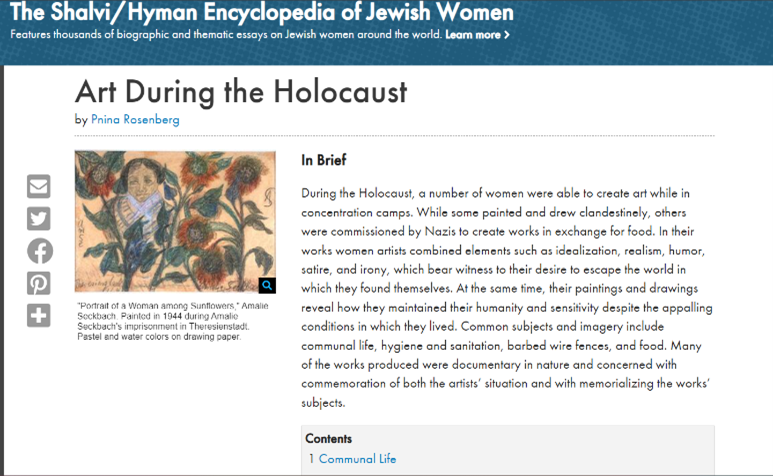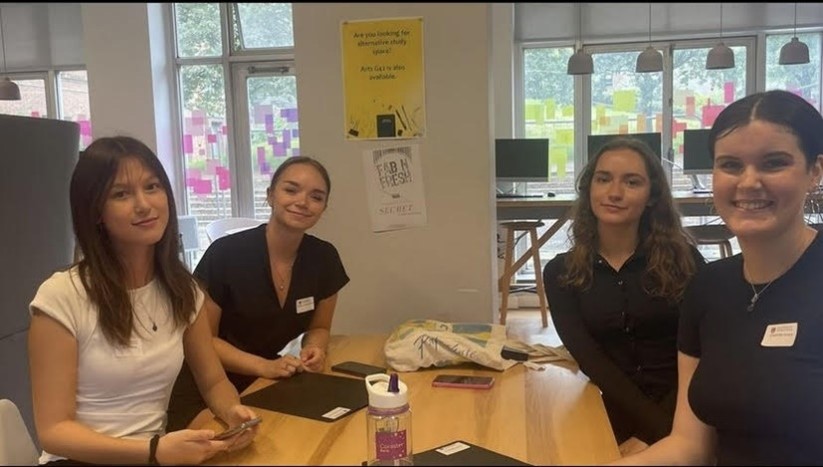My name is Lydia Eedy, I study English Literature and History and I had the great opportunity to work on the project – Antisemitism in Post migrant Britain during my first year of university. I was given the task of researching the Babi Yar Massacre and the art, poetry, and music created by people in the Holocaust. My love for History and English accelerated my keenness to research these topics. In particular, my deep appreciation for historical art, poetry, and music made the task more fascinating and something that I would research in my spare time, rather than something of an assigned task. Although the topics I had to research contained sensitive and upsetting information at times, I felt proud that I could learn the names of people who helped create art during such cruelty. Also, I found it inspiring to learn the history of the Babi Yar massacre and how hard the Jewish people of Ukraine fought for a monument to be erected to commemorate their struggles and achievements.

As the internship progressed, the more I learned about my assigned topics, the more excited I was to present my project, as it was something that I felt pride in – I could emphasise topics, people, artworks, stories, and background information that I particularly loved learning about in my work. The presentation I had to complete in front of many historical experts, leading figures in Holocaust memorial trusts, organisations, and researchers was initially daunting. However, I was so interested in what I was presenting and what the organisations had completed, that the nerves I felt eventually melted away as I felt encouraged and inspired by hearing what my fellow interns had completed and how impressed the experts were with our work.
Notably, my favourite experience from the whole internship was having the opportunity to visit back to the university during my summer break for an insight day on what the collaborative internship entailed. Upon reading what activities/tasks all the interns had to complete I was slightly nervous as I had never completed an internship before, but I knew that if I turned down the opportunity, I would have regretted it immensely. As the day progressed, I spoke to more people either also completing the internship or were part of the team that created the internship. Gradually, I became more confident and assured myself that I would succeed in the project. Additionally, talking with the other interns and the project leaders I worked with helped me feel assured about my own skills and my role in the project as I felt incredibly welcomed and pleased that I had confidently taken the opportunity that was presented to me.

Although this may seem like a small step, to just visit the university to discuss the internship I applied for, it felt huge to me and my progression. After my first year, I felt extremely overwhelmed by the lifestyle change I experienced, especially with sitting in lectures and seminars feeling too apprehensive to ask and answer questions out of fear that I was not as confident or intelligent as other more vocal classmates (a thought probably all students have faced at least once throughout their university years). After I completed the insight day, I felt proud of myself and more confident in what I can achieve when I set any anxiety or nerves aside. So, not only had the internship offered me a fantastic chance to show off my skills in a work environment, but I came out of the internship feeling more assured about my future and myself. This is why after I completed the internship, I encouraged my friends at the University of Birmingham to apply to this internship when they can, and my friends at different universities to look out for work experience opportunities/ internships that their university has to offer.
Lydia Eedy, BA English and History
